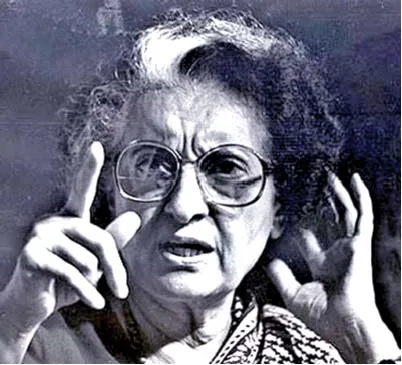Forty-Second Amendment Act, 1976 being the most comprehensive amendment made so far to the Constitution) is also known as the “Mini- Constitution’; it gave effect to the recommendations of the Swaran Singh Committee. The said amendment amended the Preamble to the Constitution, 40 Articles and the Seventh Schedule, and added 14 new articles and two new parts to the Constitution
Attack on Fundamental Rights & Judiciary
- Made the constitutional amendments beyond judicial scrutiny on any grounds
- Made certain legislations exempt from being challenged on the ground of infringing Part III of the Constitution that deals with Fundamental Rights – Right to Equality (Article 14-18), Right to Freedom (Article 19-22), and Right to Constitutional Remedies (Article 32)
- Curtailed the power of judicial review and writ jurisdiction of the Supreme Court and high courts
- Provided that the laws made for the implementation of Directive Principles cannot be declared invalid by the courts on the ground of violation of Article 14, Article 19 or Article 31
- Empowered the Parliament to make laws to deal with anti-national activities and such laws shall have precedence over Fundamental Rights (Part III of the Constitution)
- Court cannot direct the production of any presidential rules made for convenient transaction of the business of the Government of India
- Extended the one-time duration of the President’s rule in a State from six months to one year
- Facilitated the proclamation of national emergency in any part of territory of India
- Added three new Directive Principles viz., equal justice and free-legal aid, participation of workers in the management of industries and protection of environment, forests and wildlife
- Added part IVA prescribing Fundamental Duties to be performed by citizens
Parliament & State Legislature
- President made bound by the aid and advice of the Cabinet
- Raised the tenure of Lok Sabha and State legislative Assemblies from five to six years
- Removed the requirement of quorum in the Parliament and the state legislatures
- Empowered the Parliament to decide from time to time the rights and privileges of its members and Committees
- Froze the seats in the Lok Sabha and state legislative assemblies on the basis of 1971 census till 2001
Amendment of 7th Schedule
- Added in Union List – Deployment of any armed force of the Union in any State and their powers/liability, etc.
- Shifted five subjects from the state list to the concurrent list, viz, education, forests, protection of wild animals and birds, weights and measures and administration of justice, constitution and organisation of all courts except the Supreme Court and the high courts
- Added Population control and family planning in Concurrent List
Other changes
- Added three new words (i.e., socialist, secular and integrity) in the Preamble.
- Empowered the Centre to deploy its armed forces in any state to deal with a grave situation of law and order
- Shortened the procedure for disciplinary action by taking away the right of a civil servant to make representation at the second stage after the inquiry (i.e., on the penalty proposed)
- Added Part XIVA for providing for administrative tribunals and tribunals for other matters
- Provided for the creation of the All-India Judicial Service (Research by Aditya Kashyap)



















Comments